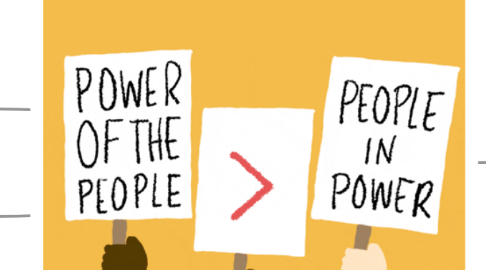
1. Structural Power
1.1. Politics of complexity: Conceptualizing Agency, Power and Powering in the Transitional Dynamics of Complex Adaptive Systems
1.1.1. Relates to Caleb's research topic "Power Complexity"
1.1.1.1. You might be interested in this discussion
1.2. Political Networks Editors' Introduction: A Relational Political Science
1.3. Structure Reconsidered: Towards New Foundations of Explanatory Transitions Theory
1.4. Networks of power: insights into Guatemala's neoliberal power and knowledge elite
1.4.1. Explores privilege in think tanks as a player in academic reporting
1.5. Distant Interactions, Power, and Environmental Justice in Protected Area Governance: A Telecoupling Perspective
1.5.1. Telecoupling as a concept
1.5.1.1. the threads connecting distant places
1.5.1.1.1. increasingly visible and becoming more relevant
1.5.1.1.2. geography is no longer the great connector
1.5.2. TELECOUPLING UNLOCKED- 8 LESSONS LEARNED (article with some further definitions as a starting point)
1.5.2.1. 1. Boundaries are fluid and multidimensional
1.5.2.2. 2. Agents evolve and interact to drive telecouplings
1.5.2.3. 3. Telecoupling framework bridges the gap between lost signals
1.5.2.4. 4. Multiple telecouplings are linked
1.5.2.5. 5. Policies are feedbacks that make or break a telecoupling
1.5.2.6. 6. Sustainability of parts does not equal sustainability of the whole
1.5.2.7. 7. Telecoupling affects resilience
1.5.2.8. 8. Multi-level sustainability solutions are needed
1.6. Power in Transition: An Interdisciplinary Framework to Study Power in Relation to Structural Change
2. Political Power
2.1. Reflections on Seven Ways of Creating Power
2.1.1. Power is created from
2.1.1.1. 1. Social order (Parsons, Luhmann, Barnes, Haugaard, Clegg and Giddens)
2.1.1.2. 2. Bias (Bachrach and Baratz);
2.1.1.3. 3. Systems of thought (Foucault);
2.1.1.4. 4. False consciousness’ (Lukes)
2.1.1.5. 5. Power/knowledge, obligatory passage points (Foucault and Clegg)
2.1.1.6. 6. Discipline (Foucault)
2.1.1.7. 7. Coercion
2.1.1.7.1. P.45 "Power - A Radical View"
2.2. Theorizing Power in Political Ecology: the "Where" of Power in Resource Governance Projects
2.3. Theories of power and social change. Power contestations and their implications for research on social change and innovation
2.3.1. Centred versus diffused power
2.3.1.1. Implications for research on social change and innovation
2.4. Power - A Radical View
2.5. Towards a Cultural Political Economy: Putting Culture in its Place in Political Economy
2.5.1. Link between culture and degrowth in the article "What is Degrowth?"
2.5.1.1. Namely p.15
2.5.1.1.1. "The previous review of degrowth sources has shown the diversity of arguments which can be employed to defend degrowth. Several points are discussed here. First, the classification of sources presented in this article for analytical purposes should not be seen as implying hermetic compartments. Instead, it highlights the different foci of attention embraced by different writers or actors, depending on their social, cultural or political backgrounds."
3. Housekeeping/Next Steps
3.1. Meeting on 31.09.2022
3.1.1. Discuss points added to map and flesh out within the group
3.1.2. Clean out irrelevant topics/ classify into a different map
3.1.3. Delegate responsibility of topics
3.1.4. Assign tasks based on responsibility defined
3.1.4.1. See WP3 in this project
3.2. Draft paper
3.3. Presentation
4. Power in Transitions
4.1. What is Degrowth? From an Activist Slogan to a Social Movement
4.1.1. See also
4.1.1.1. "Green growth, a-growth or degrowth? Investigating the attitudes of environmental protection specialists at the German Environment Agency"
4.1.1.1.1. Measures for attitudes
4.2. Unravelling Non-Human Agency in Sustainability Transitions
4.3. Regime Resistance against Low-Carbon Transitions: Introducing Politics and Power into the Multi-Level Perspective
4.3.1. Missing Article
4.3.1.1. Please add relevant article
4.4. Black Box of Power in Polycentric Environmental Governance
4.5. Asset Manager Capitalism as a Corporate Governance Regime
4.5.1. Proposes a radical difference of perspective in terms of focus of energies and assets
4.5.2. The influence of energy as an asset
